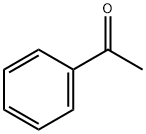Food additives that are harmful to the human body
2025-06-20
In today’s globalized food industry, additives are widely used to enhance flavor, improve appearance, and prolong shelf life. While many food additives are approved and generally recognized as safe, some have been linked to adverse effects on human health. As processed foods become more prevalent, understanding the potential risks associated with harmful food additives becomes increasingly important.
One of the most controversial food additives is monosodium glutamate (MSG). Commonly used to enhance the savory flavor in soups, snacks, and processed meats, MSG has been associated with headaches, chest pain, nausea, and a condition often referred to as "Chinese Restaurant Syndrome." Although scientific consensus on MSG’s safety has been mixed, individuals with sensitivities may experience negative symptoms after consumption.
Another widely used additive is artificial food coloring, such as Red 40, Yellow 5, and Blue 1. These synthetic dyes are used to make food products more visually appealing, especially to children. However, some studies have linked certain artificial colorings to hyperactivity in children and potential allergic reactions. In Europe, several of these dyes require warning labels or are banned outright due to health concerns.

Sodium nitrite and nitrate, commonly used in processed meats like bacon, sausages, and ham, help preserve color and prevent bacterial growth. However, when these compounds are exposed to high heat or acidic environments, they can form nitrosamines, which are known carcinogens. Long-term consumption of nitrite-containing foods has been linked to an increased risk of colorectal and stomach cancers.
Butylated hydroxyanisole (BHA) and butylated hydroxytoluene (BHT) are preservatives used to prevent oils in food from becoming rancid. While effective in maintaining shelf life, these compounds have raised concerns due to their potential role in hormone disruption and cancer formation in animal studies. Though still approved in small quantities, their safety in long-term human consumption remains debated.
Lastly, high-fructose corn syrup (HFCS), a sweetener found in soft drinks and many processed snacks, has been associated with obesity, type 2 diabetes, and fatty liver disease. Its excessive presence in processed foods contributes to metabolic disorders and has been a major public health concern, especially in countries with high consumption rates.
In conclusion, while food additives play a role in modern food production, some pose risks to human health when consumed in large amounts or over extended periods. Greater public awareness, stricter regulations, and choosing minimally processed foods can help reduce exposure to potentially harmful additives and promote better long-term health outcomes.
As a professional manufacturer and supplier, we provide high-quality products. If you are interested in our products or have any questions, please feel free to contact us.


